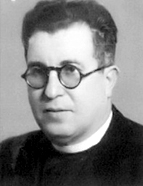

As Judite Freitas has observed, Silva Rego's work can be regarded as part of the Methodical School (J. Freitas, "Perspectivas Históricas..." [Historical Perspectives...], 2006, p. 87). Heuristics played a central role in his work, emphasising that the historian should leave "nothing uninvestigated" (A. Silva Rego, "Da imparcialidade...", 1962, p. 150). He thus dedicated himself to the production of documentary collections, editing sources, and analysing documents. In addition to the aforementioned work, he also coordinated several sourcebooks such as As Gavetas da Torre do Tombo [The Drawers of the Torre do Tombo] (1960-1977), A documentação ultramarina portuguesa [Portuguese overseas documentation] (1960-1967) or Manuscritos da Ajuda: Guia (1966-1973). The attention he devoted to sources resulted in the pioneering need to establish palaeographic rules for transcribing documents, employing international European standards as a model, as he himself noted (A. Silva Rego, Documentação para a História..., 1947, p. VIII).
Silva Rego collaborated closely with the major Portuguese academic and cultural institutions, including the Overseas Historical Archive, the Centre for Political and Social Studies at the ISCSPU, the Portuguese Academy of History, the Geographical Society, and government bodies such as the Overseas Scientific Research Board, which later became the now-extinct Investigação Científica Tropical [Tropical Scientific Research Institute] (1979-2015). Renowned historians were drawn to his figure, becoming part of networks of international specialists in the history of Portuguese expansion and presence in the world during modern times, who acknowledged his prestige. Notably, Charles Boxer, with whom he made several trips, including one to India (C. Boxer, "Uma carta..." [A letter...], 1991, p. 81). It also facilitated the internationalisation of Portuguese historiography and fostered cooperation between its external contacts and national institutions. The audience at the inauguration of the Centre for Overseas Historical Studies, which included notable figures such as Eric Axelson, Charles Boxer, Elaine Sanceau, Damião Peres, Armando and Jaime Cortesão, and General Teixeira Botelho, illustrates this fact (E. Axelson, ibidem, p. 55). In Portugal, he is associated with a circle of authors that included Jorge Moser, Adriano Moreira, Virgínia Rau, Torquato de Sousa Soares, António Brásio, and others.
This work is financed by national funds through FCT - Foundation for Science and Technology, I.P, in the scope of the projects UIDB/04311/2020 and UIDP/04311/2020.
